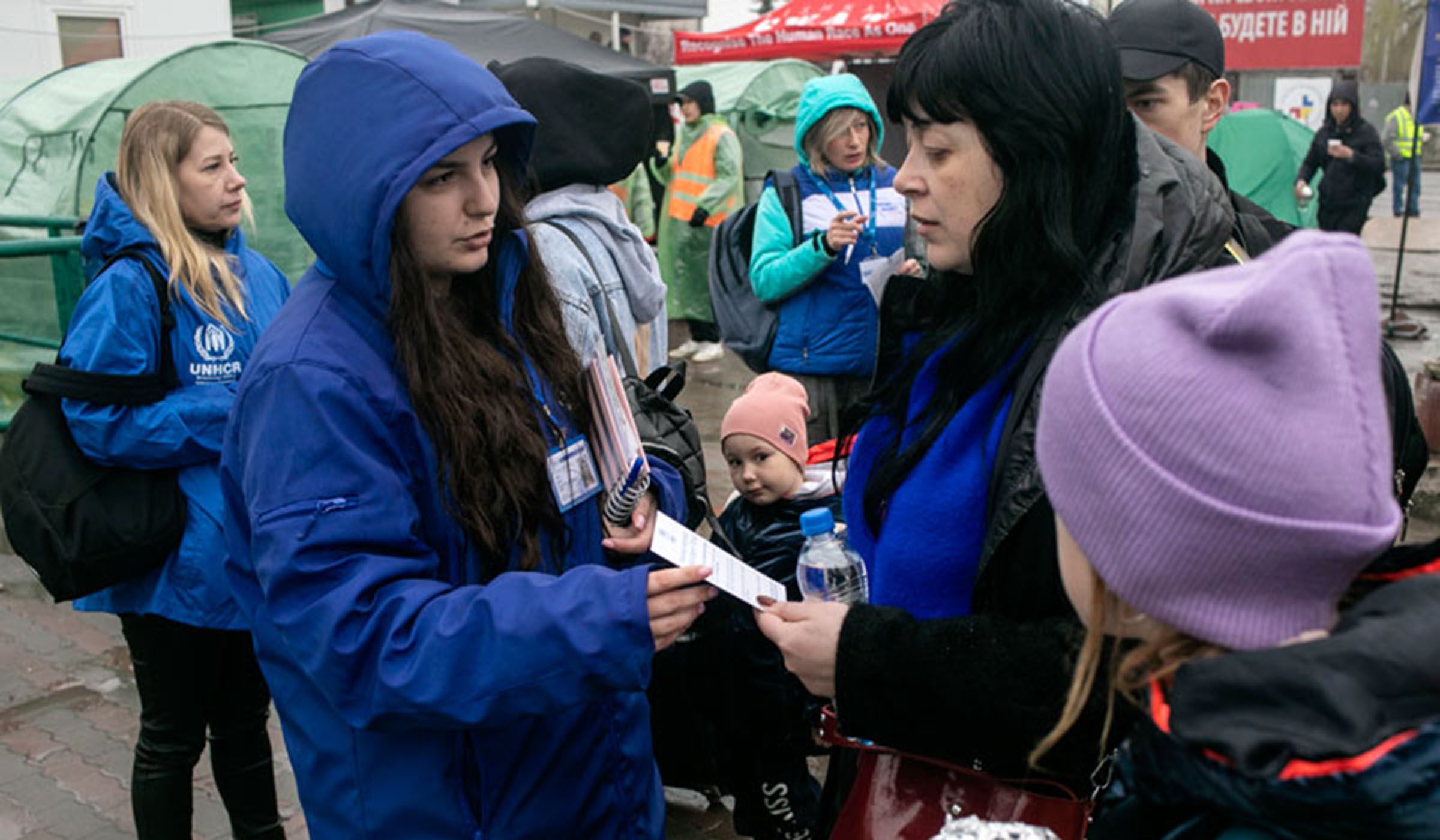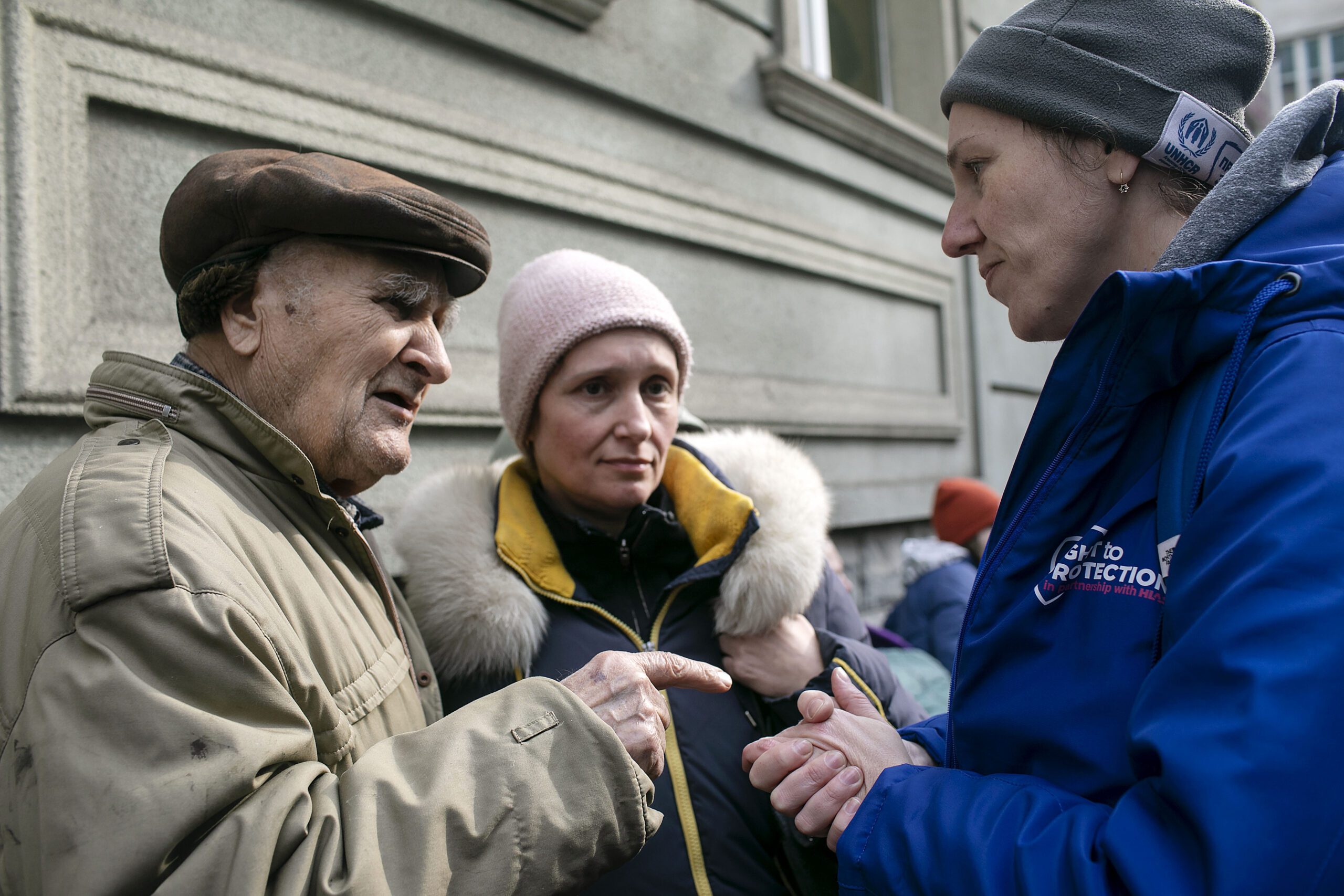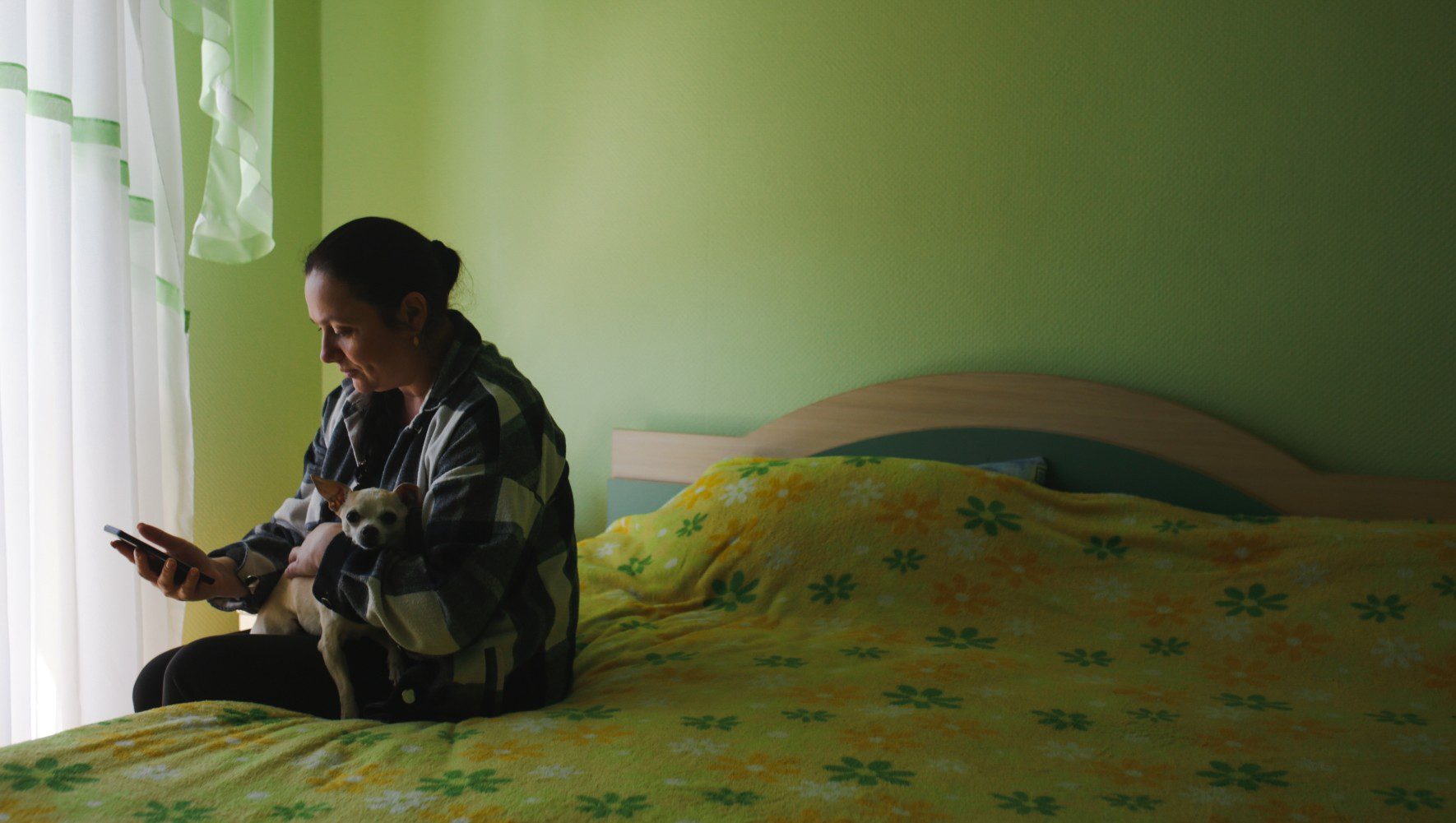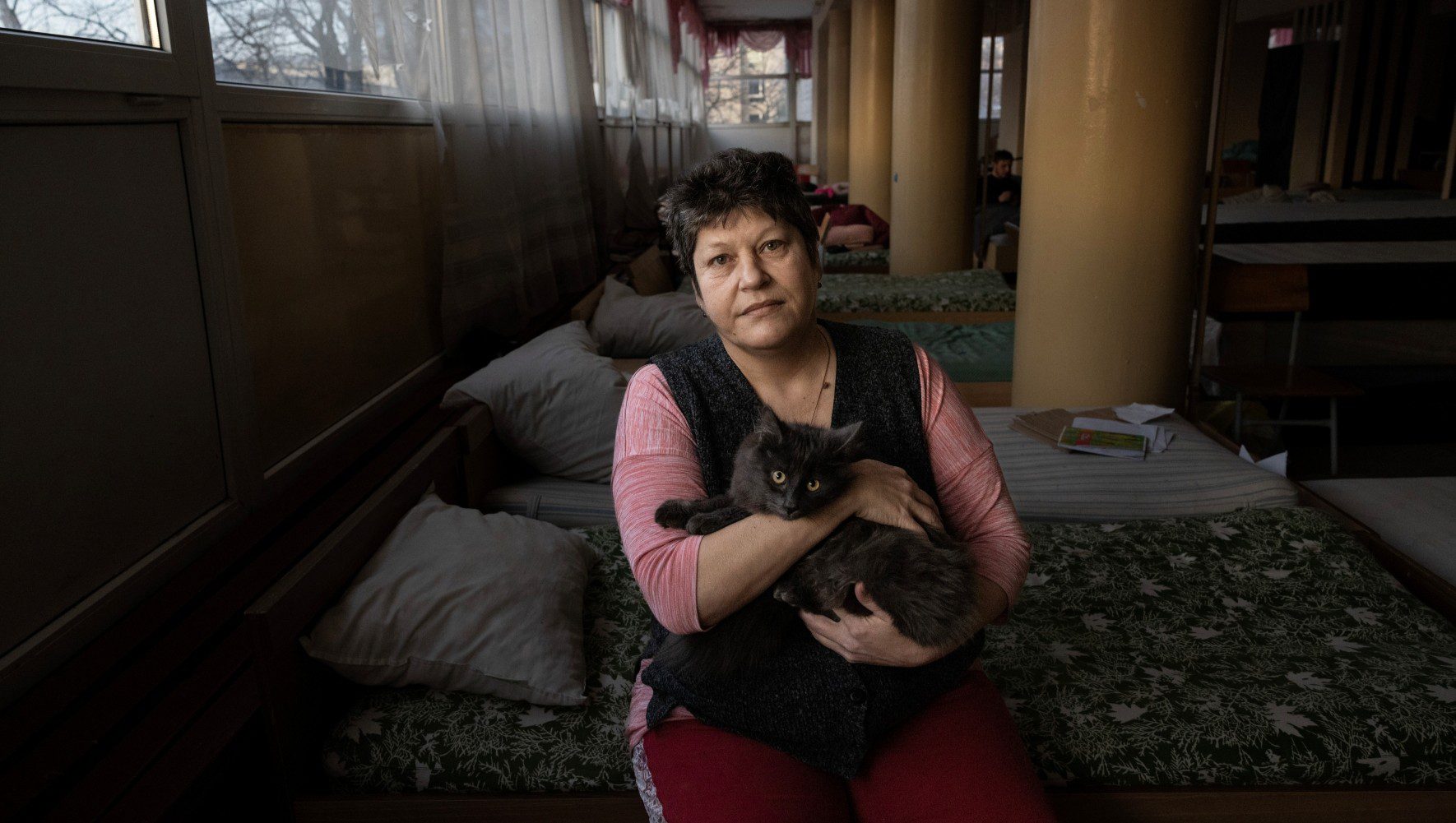
Marianna and her 84-old-year father had made it to the refugee registration office in Lviv, Ukraine, two weeks after fleeing their home in Kharkiv Oblast. Staffers from HIAS’ partner Right to Protection (R2P), a Ukrainian refugee assistance organization, were at the office to help them.
“I want my home back,” Marianna said. “I want my friends. I want my life back.”
It is not likely that many will be returning to the Kharkiv area anytime soon as vast swaths of Ukraine’s second largest city have been destroyed by fierce fighting in recent weeks. But HIAS is helping with the immediate needs of both internally displaced persons inside Ukraine and refugees in the bordering countries of Poland, Romania, Slovakia, and Moldova where more than four million have fled. And in Western Europe, HIAS is offering expertise to organize and educate communities to help provide longer term support.
At almost the same time as Marianna was being assisted in Lviv, another Ukrainian refugee was in Paris at a HIAS training session discussing how European Jewish communities can help. For him, there was no looking back, only looking ahead.
“Despite what is going on…we have to think about the future,” said Eduard Dolinsky, director of the Ukrainian Jewish Committee, who came to speak at the event. “How we will come back to a normal life? How we will restore our Jewish life?”
The training, which brought together Jewish communities from across Europe to discuss private sponsorship and resettlement, is another way HIAS can help host countries welcome refugees and allow them to build a new life. The Welcome Circle model, which is being used to help resettle Afghans in the U.S., can be adapted and implemented by different local European communities to receive Ukrainian newcomers.
Katya Moroz, a former R2P employee now working as a consultant for HIAS in Warsaw, has been helping coordinate the Ukraine regional response with NGOs and local partners in the region. HIAS Emergency Response staff have also been in Poland, and HIAS is hiring technical staff to focus on child protection and mental health support.
Moroz, who was living in Kyiv before the war started, has visited reception centers and is writing a rapid needs assessment report. After food, shelter, and medical needs are met, she feels the best approach is to ask people what they need.
“It takes a bit of time to find out what people actually need, instead of imposing pre-designed structures on them,” she said. “So that’s what we are doing.”
Moroz found out through her own experience that getting prescription medicine can be extremely challenging for the displaced. After talking with doctors, pharmacists, and refugees, she says she will be flagging the issue with the Polish Ministry of Health.
The conflict has led to a new partnership for HIAS. CADENA, a Mexican Jewish NGO with deep experience providing humanitarian aid during emergencies, is carrying out several HIAS-funded projects in Poland. Its work includes providing supplies at the Medyka Border crossing where refugees sometimes wait for up to 48 hours to cross, and hosting specialized activities and care for children and families at the Korczowa Refugee center. HIAS is also working with Airbnb to provide emergency housing for refugees in Poland.
HIAS Europe has provided financial assistance to Jewish communities in Poland, Moldova, and Romania and is working to staff up in Moldova, Hungary, and Romania to help people relocate to Western Europe. Ilan Cohn, the director of HIAS Europe, emphasized that HIAS’ approach in Europe will be to work through Jewish communities and Jewish social services to support refugees, which has been working well in Poland. “This network of Jewish communities has proven very powerful,” he said. “They mobilized very quickly.”
HIAS is advising the Polish Jewish community how to develop sustainable interventions. Rabbi Michael Schudrich, the Chief Rabbi of Poland, has asked HIAS for technical support, as his Jewish community does not have the expertise of a professional humanitarian agency. As for what Americans can do right now to help, the rabbi says writing a check is the way to do most good.
“We have kosher food, we have clothing,” Schudrich said. “If people send money, we can get things. We need to be effective.”
Within Ukraine itself, HIAS continues to support R2P which is operating a hotline 15 hours a day, seven days a week to provide information about services, evacuation, and refugee status. R2P is distributing food and supplies and also providing mental health support where it can. HIAS funding has gone toward hiring additional mental health professionals and sending a coordinator to the country to further support R2P and assist with HIAS programs in the country and on the border.
HIAS continues to work with a number of local partners in different countries, including Foundation Our Choice, a Polish NGO established by Ukrainians in 2009, which provides shelter and cash for rent through the HIAS-Airbnb partnership; and VOICE, which supports women’s rights and women-led organizations in emergencies, and is working in Moldova, Slovakia, and Poland.

R2P coordinator Yulia Tralo (right) speaks with Marianna (center) and her 84-old-year father (left) at the registration office for refugees in the city of Lviv, Ukraine, March 30, 2022. They fled their home in Kharkiv Oblast two weeks ago. Right to Protection (R2P) is a Ukrainian refugee assistance organization established with help from HIAS in 2013.
(Photo Credit: AG for HIAS)



